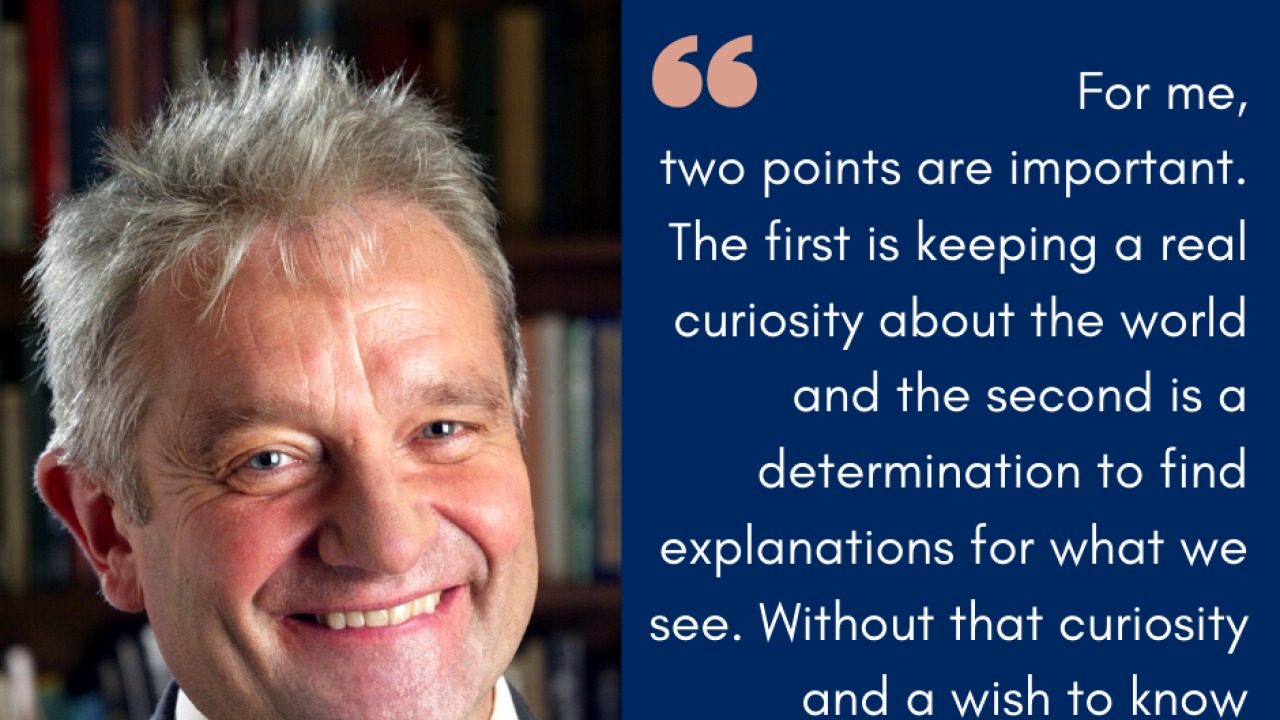
Why be a scientist? Nearly every scientist has a different answer and a different inspiration, drawn from varied careers, outlooks, and experiences. For its 40th anniversary in 2004, ICTP published the book One Hundred Reasons to be a Scientist, a collection of 100 essays from many eminent physicists and mathematicians with a connection to ICTP. The book is a source of many insights from the lives and careers of scientists, including Mildred Dresselhaus, Freeman Dyson, Vera Rubin, and Francis K.A. Allotey. The authors discuss what led them to study science, the difficulties they encountered and overcame, and their passions and hopes for the future.
We are revisiting twenty of these stories highlighting one of them every week, sharing inspirations from the essays and showcasing the words of these great scientists. During the uncertainty of the current global pandemic, the words will hopefully help researchers feel less alone in their scientific path.
We are presenting this week the story of Paul Nurse, a British geneticist who was awarded the Nobel Prize in Physiology or Medicine in 2001, along with Leland Hartwell and Tim Hunt, for their discoveries of protein molecules that control the division of cells in the cell cycle. He was President of the Royal Society from 2010 to 2015 and is now Chief Executive and Director of the Francis Crick Institute, in London, UK.
In his essay, Nurse tells how his curiosity about how Nature works led him to study science, and especially the mechanisms that underlie the reproduction of cells in all living organisms. You can read it here.
If you want to learn more about Sir Paul Nurse, here you can watch the Nobel Lecture he gave in 2001 at Stockholm University.
Here you can also find a lecture by Nurse on “What is life?”, curated by The Royal Institution. Or here you can hear his short advice on how to think creatively.
Finally, if you are interested in learning about 99 more scientists and what inspired them, you can find the whole book in electronic format for free download on ICTP’s library website, in English, Italian and Urdu.
Here you can read the previous stories:
















